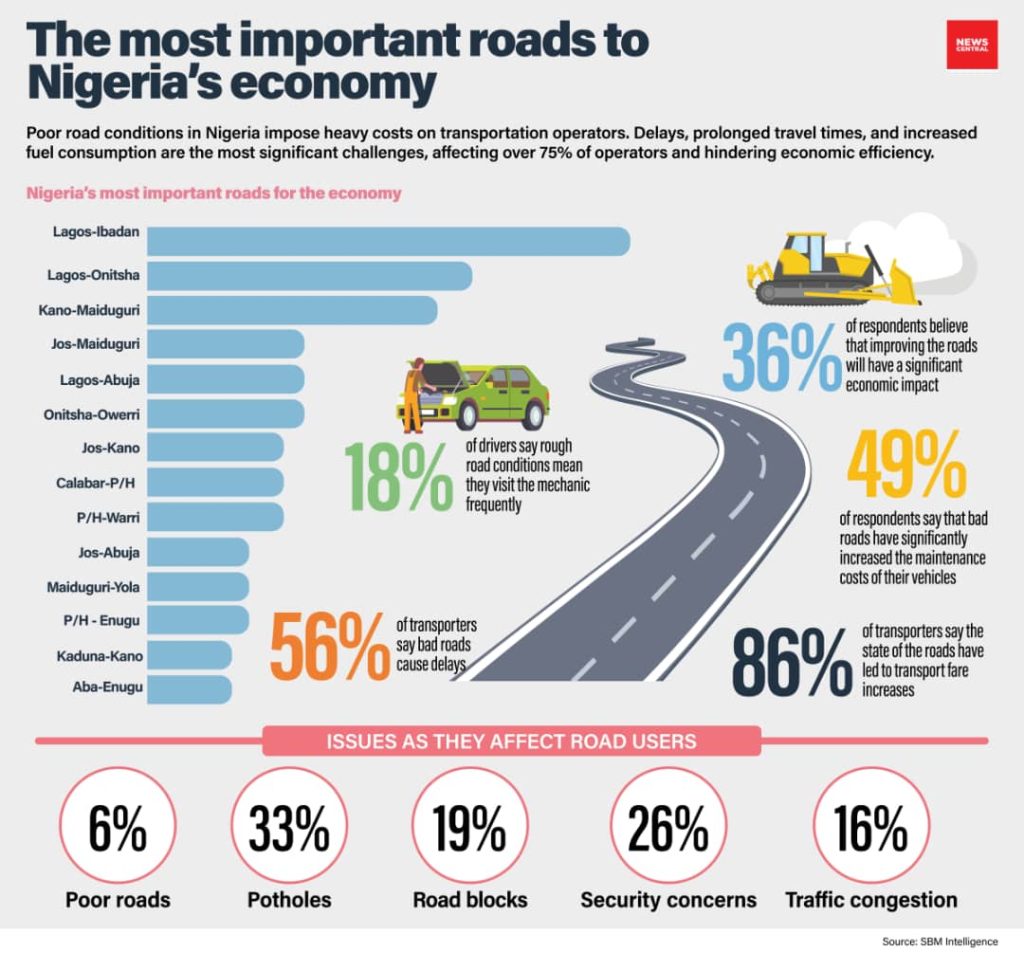Nigeria, a country full of promise, struggles with a key infrastructure shortfall: its highways. The report “Roads to Nowhere: A Bumpy Ride Through Nigeria’s Roads,” published recently by SBM Intelligence, depicts a transport system beset by insecurity, neglect, and a growing disconnect between expectations and reality.
A startling fact is revealed by the report, which is based on surveys of 245 commercial drivers nationwide.
Potholes and poor drainage were the most common road conditions, with nearly 70% of drivers rating them as mediocre or poor. The effects are widespread. Travel durations are constantly longer than anticipated, which causes major delays in the delivery of goods, raises transportation expenses for companies, and lowers national productivity.
According to the study, one of the best examples of this dilemma is the Lagos-Kano route. Due to the difficulties caused by bad road conditions, heavy traffic, and security concerns, drivers reported trip times that were far longer than those suggested by guidance apps.

Insecurity is a major concern. Drivers reported hearing or experiencing security situations, such as armed robberies, kidnappings, and attacks by criminal gangs, in a startling 84.6% of cases. Hotspots are large cities with a notably elevated probability of experiencing criminal activity, such as Lagos, Port Harcourt, and Maiduguri.
Although certain areas have seen considerable growth, the pace of advancement has been inconsistent.
The report highlights the necessity of a multifaceted strategy that includes giving road maintenance and rehabilitation top priority alongside new construction projects, utilising private sector investment to enhance infrastructure quality and efficiency, bolstering law enforcement along major highways to confront the escalating security concerns, encouraging cooperation between communities, government agencies, and civil society organisations to identify and address local road issues,
The report’s conclusion highlights how crucial it is to make investments in road infrastructure. The goal of investing in road infrastructure is to create a more resilient, interconnected, and wealthy Nigeria—not only to construct new roads. Unlocking Nigeria’s economic potential, raising the standard of living for its people, and guaranteeing a more successful future for the country all depend on addressing these issues.

